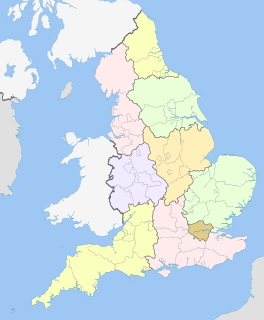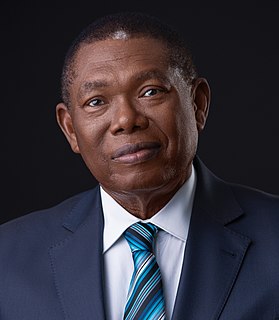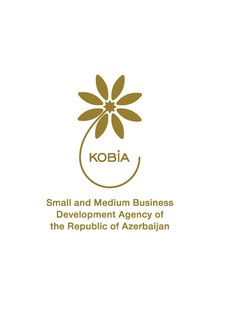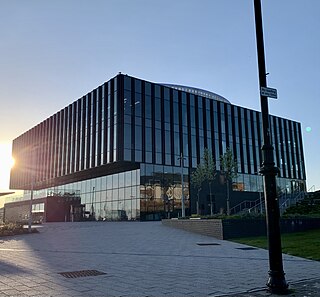Related Research Articles

Small businesses are corporations, partnerships, or sole proprietorships which have fewer employees and/or less annual revenue than a regular-sized business or corporation. Businesses are defined as "small" in terms of being able to apply for government support and qualify for preferential tax policy varies depending on the country and industry. Small businesses range from fifteen employees under the Australian Fair Work Act 2009, fifty employees according to the definition used by the European Union, and fewer than five hundred employees to qualify for many U.S. Small Business Administration programs. While small businesses can also be classified according to other methods, such as annual revenues, shipments, sales, assets, or by annual gross or net revenue or net profits, the number of employees is one of the most widely used measures.
Small and medium-sized enterprises (SMEs) or small and medium-sized businesses (SMBs) are businesses whose personnel numbers fall below certain limits. The abbreviation "SME" is used by international organizations such as the World Bank, the European Union, the United Nations, and the World Trade Organization (WTO).

In the United Kingdom, regional development agencies (RDAs) were nine non-departmental public bodies established for the purpose of development, primarily economic, of England's Government Office regions between 1998 and 2010. There was one RDA for each of the NUTS level 1 regions of England. Similar activities were carried out in Wales by the Welsh Government Department of Economy and Transport, in Northern Ireland by the Department of Enterprise, Trade and Investment and in Scotland by Scottish Enterprise and Highlands and Islands Enterprise.
A social enterprise is an organisation that applies commercial strategies to maximize improvements in financial, social and environmental well-being. This may include maximizing social impact alongside profits for co-owners.

Joanne Kate Swinson is a former British Liberal Democrat politician who was Leader of the Liberal Democrats from 22 July to 13 December 2019. She was the first woman and the youngest person to hold the position, as well as the holder of the post for the shortest period of time. Swinson was the Member of Parliament (MP) for East Dunbartonshire from 2005 to 2015 and 2017 to 2019. In September 2020 Swinson became Director of Partners for a New Economy (P4NE).
A micro-enterprise is generally defined as a small business employing nine people or fewer, and having a balance sheet or turnover less than a certain amount. The terms microenterprise and microbusiness have the same meaning, though traditionally when referring to a small business financed by microcredit the term microenterprise is often used. Similarly, when referring to a small, usually legal business that is not financed by microcredit, the term microbusiness is often used. Internationally, most microenterprises are family businesses employing one or two persons. Most microenterprise owners are primarily interested in earning a living to support themselves and their families. They only grow the business when something in their lives changes and they need to generate a larger income. According to information found on the Census.gov website, microenterprises make up 95% of the 28 million US companies tracked by the census.

Mittelstand commonly refers to a group of stable business enterprises in Germany, Austria and Switzerland that have proved successful in enduring economic change and turbulence. The term is difficult to translate and may cause confusion for non-Germans. It is usually defined as a statistical category of small and medium-sized enterprises with annual revenues up to 50 million Euro and a maximum of 500 employees.

The International Trade Centre (ITC) is a multilateral agency which has a joint mandate with the World Trade Organization (WTO) and the United Nations (UN) through the United Nations Conference on Trade and Development (UNCTAD).

Aga Khan Fund for Economic Development SA is a Swiss for-profit entity and international development finance institution which invests in countries of East Africa, West Africa, Central Asia, and South Asia. It is based in Geneva, Switzerland.
The Coalfields Regeneration Trust is a registered charity that works across the former Coalfield communities of England, Wales and Scotland. The Charity was founded in 1999. The Coalfields Regeneration Trust receives funding from the Department of Communities and Local Government for their work in English communities, The Welsh Government for their Welsh activities and the Scottish Government to cover their Scottish work. The Trust runs a number of initiatives and activities that make things happen at a community level in Coalfield areas. Each Country sets its own strategic objectives in line with local priorities.
Ireland's County & City Enterprise Boards (CCEBs) were established in 1993, as companies limited by guarantee, during a time of high unemployment (15.1%) and limited opportunity for business. They were given statutory status under the Industrial Development Act of 1995. The 35 boards were created to stimulate economic development and to cultivate an ethos of local entrepreneurship. They were dissolved by the County Enterprise Boards (Dissolution) Act 2014, and their functions transferred to Enterprise Ireland.
Small and medium enterprises in Mexico, generally called PyMEs, are an important segment of the Mexican economy. They are classified in two types of small and medium enterprises: family businesses and non-family businesses.

The Grassroots Business Fund is a non-profit organization based in Washington, DC. It has field offices in Kenya, Peru, and India. Their mission is to build and support high-impact enterprises that provide sustainable economic opportunities to thousands of people at the base of the economic pyramid. These enterprises are grassroots business organizations in developing countries that empower large numbers of the poor as producers of income-generating commodities and products, as consumers of affordable goods and services, and as independent entrepreneurs. GBF actively supports enterprises throughout Latin America, Africa, India, and Southeast Asia.

Chuku Wachuku, a royal prince of Ngwaland, is a United States educated Nigerian economist, politician, statesman, servant leader, business analyst, management expert and specialist on entrepreneurship development and SMEs: Small and Medium Enterprises. He is first Director-General of Ngwa origin at Federal Government of Nigeria major parastatal; NDE: National Directorate of Employment.
The Ministry of SMEs and Startups is a ministry of the Republic of Korea, established in July 2017 by the Moon Jae-in government. It succeeds the former Small and Medium Business Administration. The headquarters are located in Seo-gu, Daejeon. As of February 2021, Kwon Chil-seung, a member of the National Assembly and Democratic Party, has been appointed as the South Korean Minister of SMEs and Startups.
Small and medium-sized enterprises are called as KOS or KOM in Azerbaijan. SMEs have a leading position in the provision of economic growth and employment in Azerbaijan.

Small Business Development Agency of the Republic of Azerbaijan(SMBDA) is a public legal entity that supports the development of micro, small and medium businesses (SMB) in Azerbaijan, and provides support and a range of services to entrepreneurs, as well as coordinates and regulates public services in this area.
The Ghana Enterprises Agency (GEA) (formerly National Board for Small-Scale Industries is a government agency under the Ministry of Trade and Industry. The GEA is mandated by the Ghana Enterprises Agency Act, 2020 to

HALO Urban Regeneration, known simply as The HALO, is a Scottish business innovation park, urban regeneration and business start-up support company, founded, based and headquartered in Kilmarnock, East Ayrshire, Scotland. The HALO Urban Regeneration was founded by entrepreneur Marie Macklin CBE in 2006 as HALO Urban Regeneration Company Ltd., having announced the project a few years prior to official funding and creation of the HALO Kilmarnock.
References
- ↑ "East Dunbartonshire Enterprise Trust". Archived from the original on 2010-07-16. Retrieved 2010-10-20.
- ↑ "Business Enterprise Scotland, promoting Scotland's Business Enterprise Trusts". Archived from the original on 2010-02-18. Retrieved 2010-10-14.
- ↑ http://www.scottish.parliament.uk/s3/committees/eet/inquiries/Enterprise%20agency%201/44.%20EARI%20Business%20Enterprise%20Scotland%202.pdf%5B%5D
- ↑ "Jo praises East Dunbartonshire's enterprising spirit (Jo Swinson)". Archived from the original on 2009-01-08. Retrieved 2010-10-20.
- ↑ "Export agency 'generated £500m to Scottish economy'". BBC News. 4 September 2010.